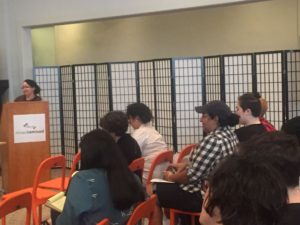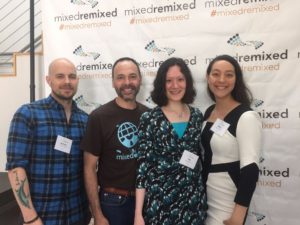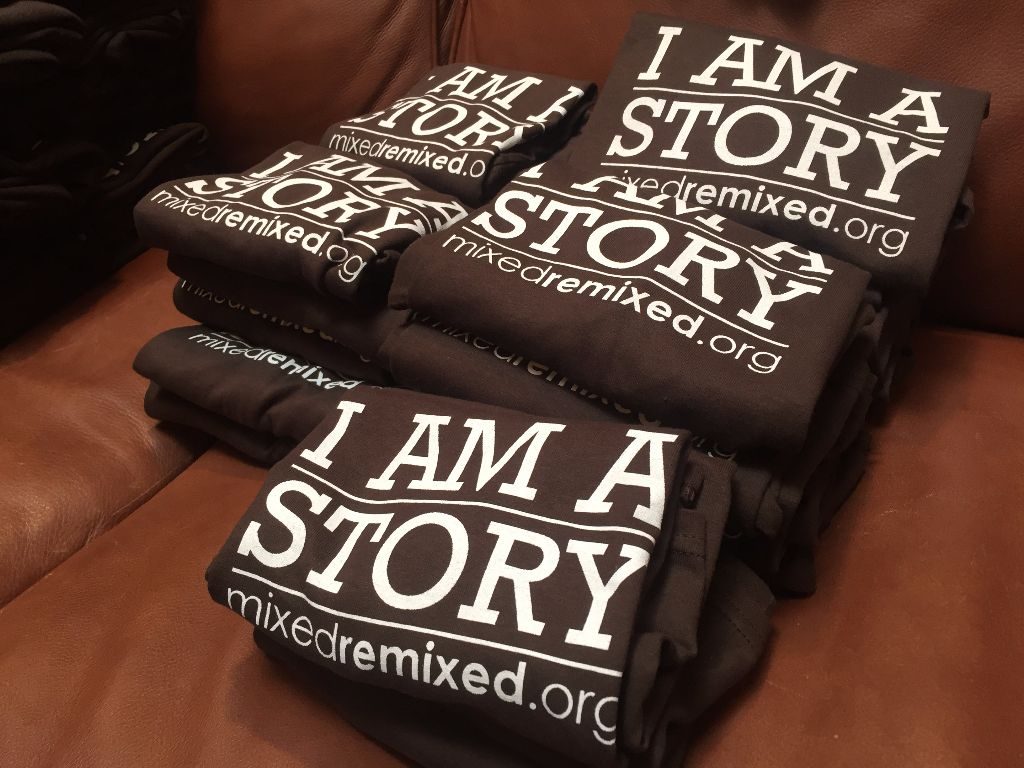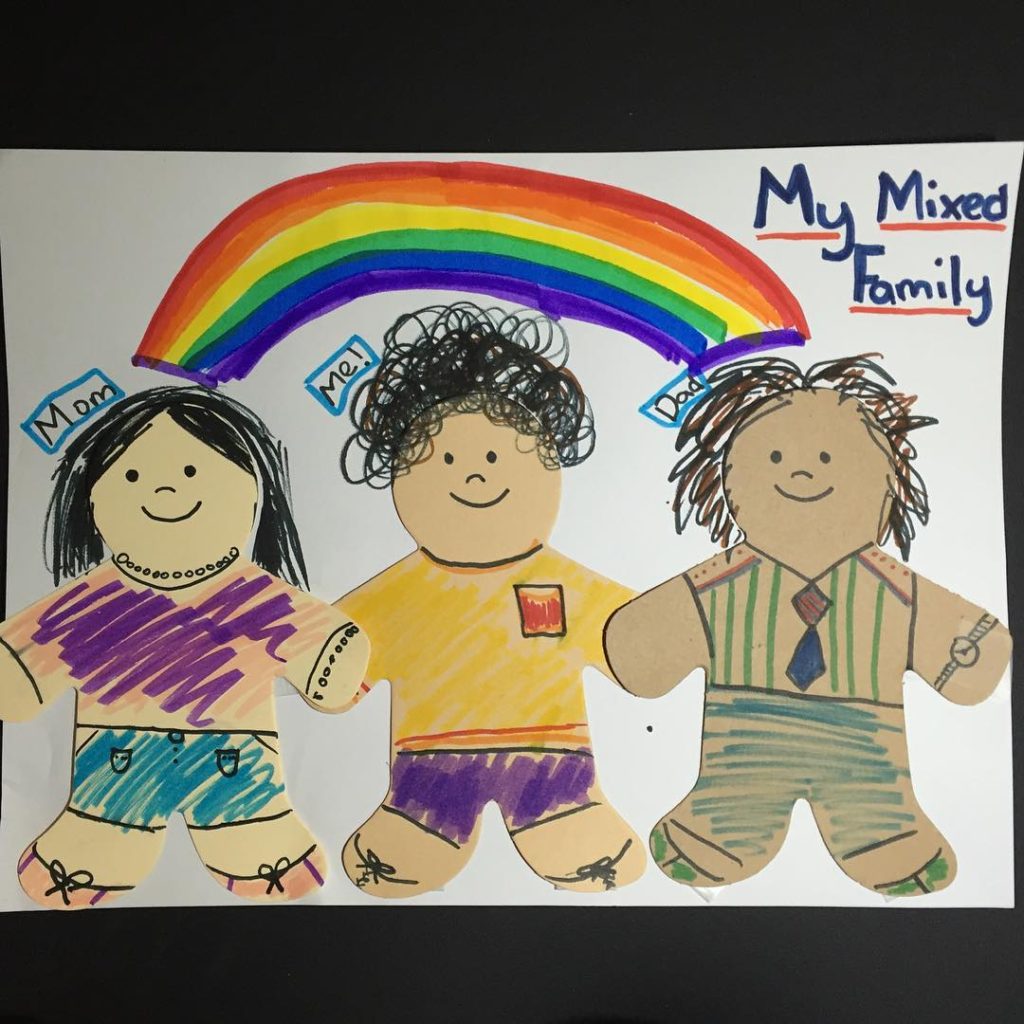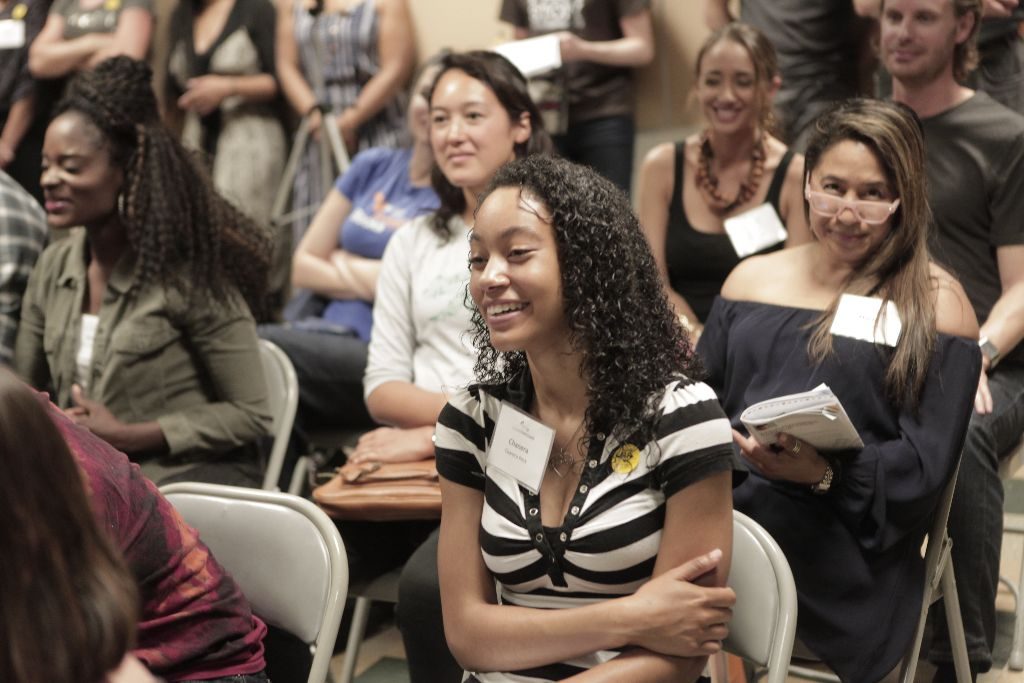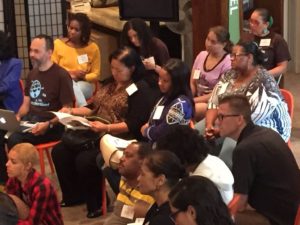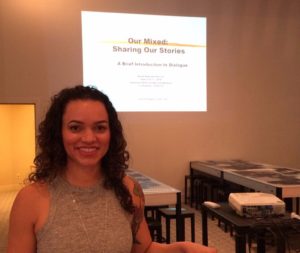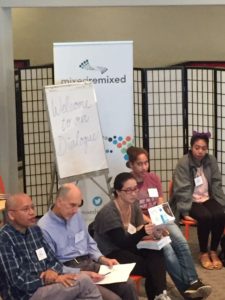The Writing Memoir & Shaping Your Life Story panel at the 2016 Mixed Remixed Festival included authors Dr. John Reed, Michael Gordon Bennett, and TaRessa Stovall, and was moderated by the inimitable Joshua Silverstein. The topics covered ranged from the writing style and process, to the healing power of writing your story.
The opening question was about the memoir writing and publishing process, and right from the start each panelist had a unique journey to share, each with its own set of lessons to be learned.
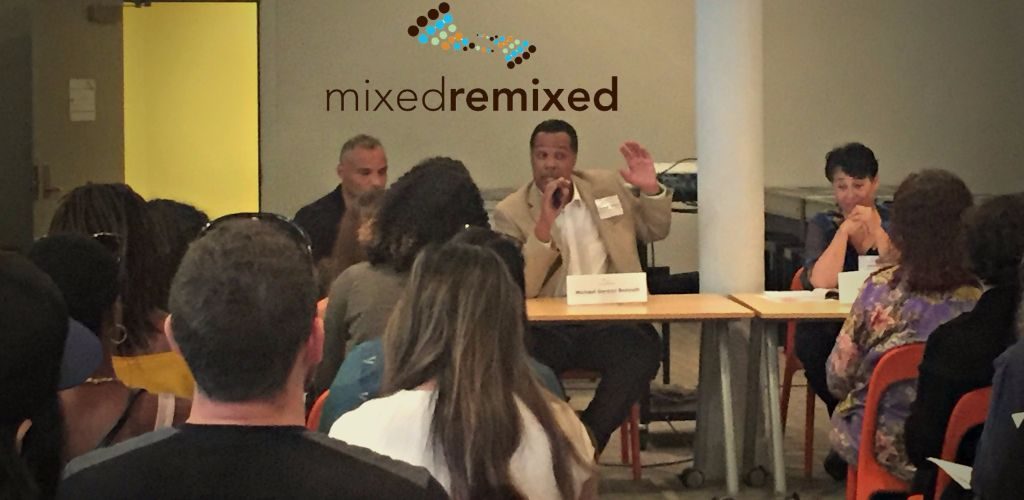 Mr. Bennett wrote the initial draft of his memoir “7/10 Split: My Journey As America’s Whitest Black Kid” in 30 days. Ten years later he published his book independently. The story is a chronologically ordered account of his life as a self-proclaimed “army brat” who, at various points of his childhood, lived on military bases in Spain, Maine, Florida and Colorado. Conversely Ms. Stovall’s memoir “Swirl Girl: Confessions of a Racial Renegade,” is written in a style that “reads like a novel.”
Mr. Bennett wrote the initial draft of his memoir “7/10 Split: My Journey As America’s Whitest Black Kid” in 30 days. Ten years later he published his book independently. The story is a chronologically ordered account of his life as a self-proclaimed “army brat” who, at various points of his childhood, lived on military bases in Spain, Maine, Florida and Colorado. Conversely Ms. Stovall’s memoir “Swirl Girl: Confessions of a Racial Renegade,” is written in a style that “reads like a novel.”

Both Ms. Stovall and Mr. Bennett were drawn to publish their work independently. A “[b]ook proposal is a marketing business plan to prove you have an audience,” stated Ms. Stovall. While she has published traditionally in the past, she chose to publish independently on this occasion to maintain more control over her content. When pitching “7-10 Split” to publishers the typical response was “we don’t know how to market your story,” explained Mr. Bennett. Independent publishing empowered him to get his story out there and prove that there is an audience for his work.
Race and racism figure prominently an all three of the panelists work, but each from profoundly different perspectives. In Dr. John Reed’s memoir “It’s Not Always Black and White, Caught Between Two Worlds,” Dr. Reed, writes from the perspective of having lived in different countries, each with very different ideas about race. Mr. Bennett writes from the perspective of having experienced the Civil Rights era from the “bubble” of military bases. The struggle to find and define one’s identity is a theme both works share. In “Swirl Girl,” Ms. Stovall gives us a young woman’s experience “navigating the tightrope of intimate race relations.”
But for all the struggles described, there is a healing aspect a memoir. “We are not taught to own who we are,” stated Dr. Reed. “It’s important to tell your story because then the respect for the individual comes in.” Mr. Bennett explained that, for him, the most difficult aspect of writing was “revealing myself.” The writing experience, he continued “allowed me to get in touch with myself for the first time in my life.”
If there is one theme that came across loudly and clearly, it was that if we embrace ourselves, embrace all pieces of our identity, embrace our multiplicities, embrace our stories, we’ll learn just how much it is that we have in common. As Dr. Reed stated, “Even if everybody is different, that’s a common theme.”- Michael Maliner, Festival Blogger Twitter @plasticspoon
This is one story in a series about the programs held at the Mixed Remixed Festival 2016. Please read through them all by searching our blog with “2016 Festival Re-Cap.”
